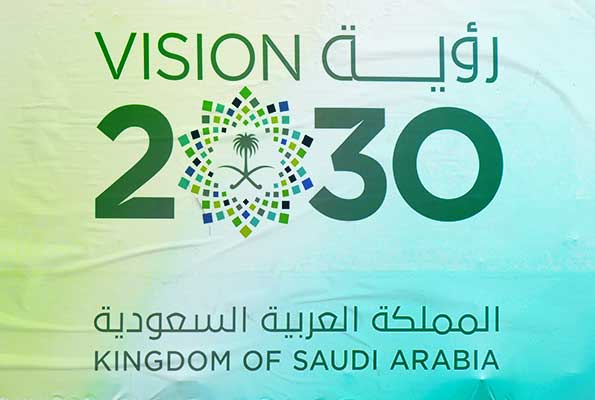Over the past few years, the Saudi government has undergone significant economic and social changes under the ‘Vision 2030’ plan. The Human Capital Development Program (HCDP), which aims to develop the skills and capabilities of the Saudi workforce, has become an essential component of the Kingdom’s economic diversification roadmap.
HCDP includes initiatives and projects, with an aim to enhance Saudi citizens’ education, job training, and professional skills. The HCDP is essential to the ‘Vision 2030’ plan, which seeks to reduce the Kingdom’s dependence on its oil trade, apart from creating a thriving society.
HCDP seeks to increase the enrollment of Saudi students in universities and colleges, both domestically and internationally. By investing in education, the HCDP aims to develop a highly skilled and educated workforce that can drive the economy’s growth.
The ecosystem of human capability has undergone several transformational shifts, including continuing education activities and processes throughout the COVID-19 pandemic. Virtual kindergarten and “Madrasati” have been the two recently introduced digital platforms. The outputs at the research, development, and innovation fronts too have significantly expanded, in terms of the number of international collaborations and research publications.
The Saudi government has bold goals for 2025, such as enrolling 40% of children in kindergarten, elevating at least six Saudi universities to the top global 200 educational institutions list, increasing Saudizataion by 40%, and ranking at least 45th on the World Bank’s human capital index.
Another critical aspect of the HCDP is the development of vocational training programs. The program aims to provide training and support to Saudi citizens to enhance their technical and vocational skills, which is essential to meet the Kingdom’s growing economy’s demands and support the development of non-oil sectors. The HCDP has launched several initiatives to support vocational training, including the Technical and Vocational Education and Training (TVET) program, which provides training across various fields.
Discussing Life-quality Enhancing Investment Pacts
The Saudi government has also facilitated four more investment agreements in the fields of biotechnology, entertainment, and education, thus reflecting its commitment to improving the standard of living in the Kingdom and opening new investment opportunities.
-
In the education and SME sectors, agreements and MoUs inked with renowned organizations include:
- A pact with the ESSEC Business School in Paris to work with the Ministry of Tourism to provide human capability development programs at the institute’s Paris campus.
- An agreement for collaboration with King Abdulaziz and King Saud Universities for student exchange programs.
- Investment agreement with international real estate and private equity firm SAFANAD and education platform Global School Management for an investment of USD 200 million in the educational sector.
- A Memorandum of Understanding (MoU) to establish a genome training program, create an accelerator hub for SMEs in the genomics industry, and support the growth of genomic databases and research initiatives with King Abdulaziz City for Science and Technology and US biotechnology company Illumina.
‘Vision 2030’ strongly emphasizes entrepreneurship and education, with Saudi Arabia having the most significant education market in the region. In addition, the Kingdom has launched a special ‘Human Capital Development Program’ as part of the programs to realize ‘Vision 2030’, and private sector investment in human capital and innovation is an unrivalled opportunity in the region.
Along with the agreements for the education sector, the government has also penned a pact with the International Indian Media and entertainment giant Eros Media for an investment of USD 100 million.
The agreements show continued trust in the Kingdom as a premier investment location, one of the main objectives of the ‘National Investment Strategy’ unveiled a year ago.
Promoting Entrepreneurship & Corporate Tie-ups
At ‘LEAP 2023’, Amazon announced the introduction of ‘Amazon Academy’, its most extensive professional development program. It would offer training and certifications in cloud technology, logistics, and retail in the Kingdom.
Experts from the Amazon Web Services (AWS), Amazon Operations, and Customer Experience teams created a world-class curriculum for the Kingdom, particularly for Amazon Academy.
Over the following three years, the project, a supplement to the ‘Human Capability Development Program’ of Saudi Arabia’s ‘Vision 2030’, seeks to teach over 30,000 Saudi individuals and provide 35,000 certification vouchers.
In partnership with Amazon, Saudi Arabia’s Ministry of Communications and Information Technology (MCIT) will promote enrollment in the Saudi Digital Academy (SDA) and the TUWAIQ Academy-run skills development academy for Saudi talent.
Amazon Academy will offer participants transformative training and certifications free of charge to raise in-demand competencies and prepare Saudis for future occupations. In addition, Amazon will keep working with academic and governmental institutions to encourage public and private sectors to actively participate in building up local talent, businesses, and last but not least, the Saudi economy.
The HCDP also aims to support the development of entrepreneurship in Saudi Arabia. The program aims to create a supportive environment for entrepreneurs and small businesses by providing them access to financing, training, and other resources.
The HCDP has launched several initiatives to support entrepreneurship, including the Fursan program, which provides funding and support to start-ups and small businesses.
The HCDP also aims to develop the healthcare sector in the Kingdom. The program seeks to enhance the quality of healthcare services and improve the health outcomes of Saudi citizens.
The HCDP has also launched several initiatives to support the development of the healthcare sector, including the National Health Information Center (NHIC), which aims to improve the use of health information technology.
In conclusion, the HCDP is a critical program that aims to develop the skills and capabilities of the Saudi workforce. The program focuses on enhancing education, vocational training, entrepreneurship, and healthcare to support the economy’s growth and create a thriving society. The HCDP is essential to the ‘Vision 2030’ plan.
However, the program’s success will depend on the continued commitment of the government, private sector, and Saudi citizens to work together to achieve the program’s objectives.



